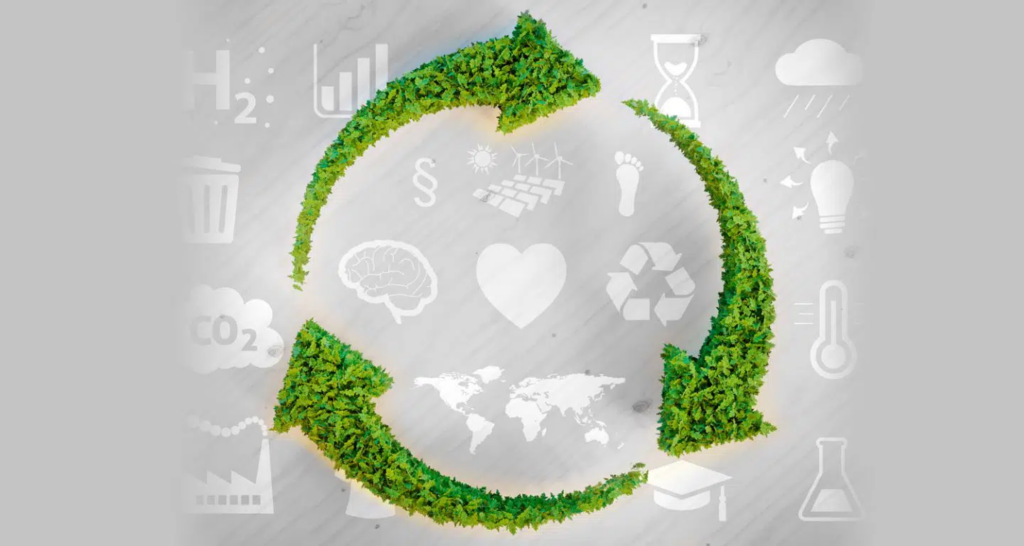Publication
The green disruption: Sustainability

Climate change, above all rising CO2 emissions, increasing consumption of resources, the growth in global population, and last but not least the COVID-19 pandemic currently spanning the globe, will provide tremendous impetus with regard to the topic of sustainability. Companies should rise to this challenge and focus their policies on sustainability as well, in order to generate their own competitive edge.
CLIMATE CHANGE
Hypothesis
In future – far more than previously – companies will have to answer for the greenhouse gases emitted in their manufacturing, supply chains, and from the use of the goods they produce.
Awareness
The UN climate agreements of the past few years, national climate protection legislation, and last but not least the youth movement “Fridays for Future”, are compelling more and more companies to make their own sustainability policies transparent and to demonstrate their contribution to climate protection goals. In future, in addition to sustainability in their own manufacturing processes, that of their global supply chains as well as the entire life cycle of the products manufactured, including recycling, will be the focus of the question “how sustainable is this”?
AIR POLLUTION
Hypothesis
Due to the global economic lockdown, for the first time the world can collectively and directly experience what happens to our environment when we produce fewer pollutants.
Awareness
The environmental satellites of NASA and the ESA have measured a significant drop in atmospheric pollutants as a result of exhaust fumes from traffic, power plants, and factories. Rough estimates assume a reduction of more than 40%.
The BBC reported that, in New York, 50% less carbon monoxide was measured in the air. Data from the Sentinel-5P satellite shows a sharp decline in the concentration of nitrogen dioxide above cities all over Europe – especially Milan, Paris and Madrid.
The water in Venice is crystal clear, dolphins are returning to Italy’s ports, and the Berlin think tank, Agora, estimates that against all expectations, it is very likely that Germany will achieve, if not exceed, the climate protection goals it set for itself.
The positive impacts on the climate as a result of the global lockdown are obvious and immediately apparent.
GLOBALISATION
Hypothesis
The demand for sustainable, locally produced goods will be far higher after the COVID-19 pandemic has been overcome, as the ramifications of globalisation, extensive supply chain networks, and the associated risks lead to a growing awareness of markets.
Awareness
In the current situation, the purchasing strategies of many companies and organisations of buying goods in Low Cost Countries (LCC) or Best Cost Countries (BCC) led in some cases to extreme difficulties with supplies. Respirators or protective clothing that were bought from Asia due to the price savings, mutate, as a result of their sudden “systemic importance”, into scarce commodities and are subject to global price wars. Undoubtedly, falling demand from end customers, but also the vulnerabilities of the automotive supply chains in a global network allow weaknesses in globalisation to be identified. When the crisis has passed, and everything starts up at the same time again, a further effect of the networked supply chains will become visible – their sluggishness.
Our view
We believe that, after digitalisation, the topic of “sustainability” will be THE second disruption. Companies will squander a competitive edge if they are not able to credibly show their contribution to climate change. The demand patterns of markets will become far more sustainable, and companies and organisations will pay more attention to their own risk management, when it comes to strategic and sustainable sourcing, again. Companies and products that do not rise to this challenge will be driven from the market by “sustainability”.








